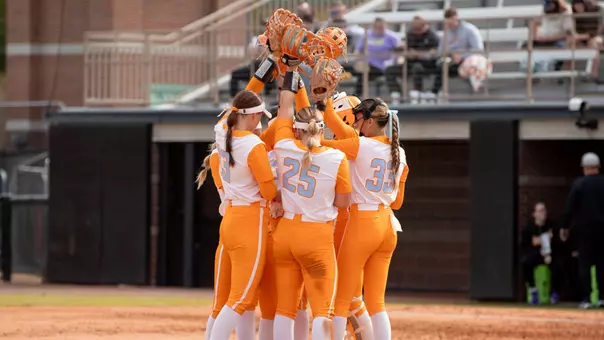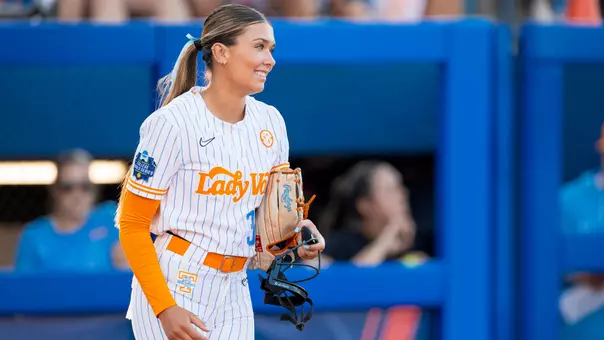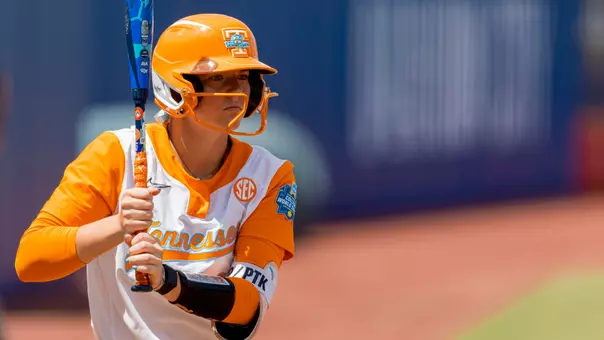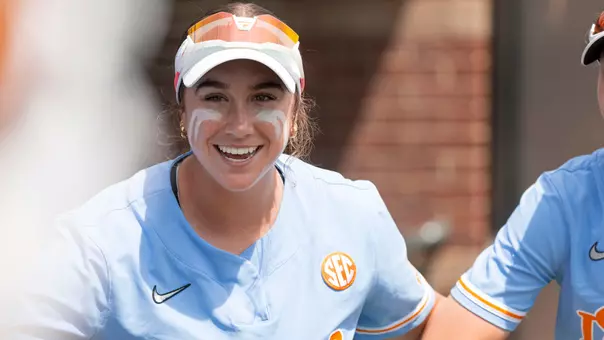University of Tennessee Athletics
Ralph & Karen Weekly Lead Softball Clinics in Mexico
August 29, 2016 | Softball
By Brian Canever, Center for Sport, Peace, & Society
Special to UTSports.com
KNOXVILLE, Tenn. -- "Softball is about letting girls know their dreams can become realities," Karen Weekly said as she reminisced on the four days she and her husband, fellow Tennessee softball co-head coach Ralph Weekly, spent leading sports clinics and sharing about the importance of getting more girls involved in sport in Mexico.
From Aug. 21 to 24, the Weeklys were in Hermosillo, a city three hours south of the border with Arizona in the northwestern state of Sonora, as part of a larger visit organized by UT's Center for Sport, Peace, & Society. The center works in partnership with the U.S. Department of State to implement the Global Sports Mentoring Program (GSMP), a cultural exchange initiative with focuses in women's empowerment and sport for people with disabilities. The Weeklys joined to support the work of one GSMP alumna Carla Bustamante, the public relations director of the popular Naranjeros baseball club who works to increase access to softball and baseball for girls in Sonora.
In Mexico, the coaches participated as panelists in an empowering women through sports conference, met with government sports leaders from Hermosillo and Sonora, and led softball clinics for more than 120 girls and coaches over the course of two nights at the Naranjeros' stadium.
I caught up with the coaches after their first softball scrimmage of the 2016-17 season, less than 24 hours after returning home from the visit, to talk about why they chose to participate and their hopes for the development of softball in Mexico.
Q: What has it felt like getting back to Knoxville after spending four days in Mexico working with girls who don't have the same opportunities and access to play softball as girls in the United States?
Karen Weekly: It really gives us perspective. It's something that I wish our entire team could experience. It's such an eye-opener being in a culture where girls don't have the opportunities that we have here in the U.S. to play sports. We are fortunate to grow up in a environment where its acceptable for girls to play sports--where they're encouraged to play sports--and they have the support and the resources from their parents and the community around them. Today we talked out onto the field to one of the most beautiful softball stadiums in the country and it reminds us to not take it for granted. I really hope we can take our whole team down to Mexico in the future to share in the experience.
Ralph Weekly: I spent most of the day thinking about our time in Sonora and how grateful the players were to have us down there. Watching my players out there today with their equipment and the facilities it made me wish I could share that because there's a lot of talent in Mexico looking for the same opportunities.
Q: How did it come together for you to join the center's team in Mexico?
KW: We met [Dr. Sarah Hillyer, director of the center] years ago when she was working on sport for peace programs around the world, before the center started. So we've had a relationship from throughout the years and we always wanted to participate, but we never had the chance for it to come together. Then about two months ago we got an email about getting involved. And, for us, as long as it was before our season, we wanted to make it happen.
Q: Were there any moments from the trip that really impressed upon you?
RW: When we were at the sports conference there was this little girl, an archer, who stood up with all her coaches and teammates around her. She couldn't have been more than 12 years old. And the way she spoke about empowering women and about how every time she let an arrow go in competition she felt powerful and like she could do anything in the world--it really touched me.
I was also really impressed by the coaches. There was one woman who said she rode on a bus with no air conditioner for nine hours one-way, and that she'd have to take the same bus back after the clinics. The courage, involvement, and the sacrifices they make, putting all of their money into their work, we were happy to be there to help any way that we could.
Q: Was there anything about the trip that surprised you?
RW: We do clinics all over the U.S. and I'd say that working with girls in Sonora was like working with girls in Tennessee or any part of our country. The organization and enthusiasm from Drs. Sarah and [Ashleigh Huffman, assistant director of the center] and the entire team, and the way they approached every clinic so happy to be there...it made for trip I can say that I'll remember for the rest of my life.
KW: I really felt like the theme was always about empowering women and making them feel supported and valued, no matter their culture or the obstacles along the way. At a clinic, I could get really involved in teaching girls how to throw a ball or swing a bat, but the real mission of the trip was using sports to empower them and make them feel stronger. Their lives and careers may not be playing sports, but hopefully through sports they will feel more confident, independent, and have greater self-worth.
Q: Do you have any future hopes for the girls you were able to work with in Mexico and using softball to empower women in those communities?
KW: We'd like to get all the SEC institutions involved in sponsoring the softball program downs there by sending equipment after the season to help the girls with much-needed resources. But, we'd also like to have an exchange arrangement where their coaches could come up here and visit us; spend a week with the center doing leadership activities, then work with us so we could train them up and develop them as coaches.
For us, in the end, it goes back to Carla's own story. She entered a newspaper contest when she was 11 years old and she got to go to a baseball game at Naranjeros stadium because of it. That stuck with her forever and inspired her dream to work in the sports world. That's what we're hoping to do through softball. Maybe there's a girl who came to the clinics who will then be inspired to play softball in college, or become a softball coach, and pursue her education. It's all about letting them know they can dream and that those dreams can come true one day.

















